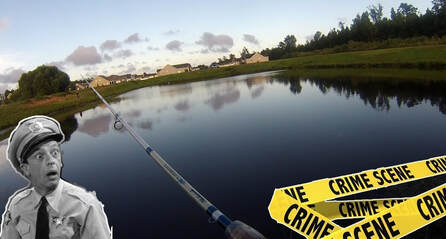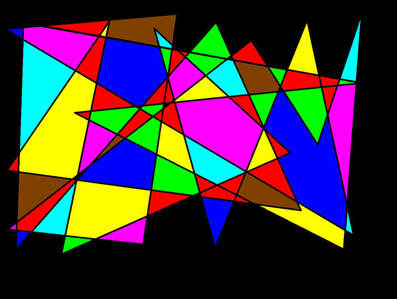|
‘When trouble arises and things look bad, there is always one individual who perceives a solution and is willing to take command. Very often, that person is crazy.’ (Dave Barry) We can think of leadership as the property of a structure, in which a person designated as a 'leader' holds particular responsibilities and has, at least in principle, the hierarchical authority needed to fulfil them. We can also think of leadership as an intrinsic property of an individual. In this sense, leadership is something that resides within and emanates from a person, something that she or he has and does. This is the realm of competency frameworks and of leader-development initiatives. We can also think of leadership as the property of a group; for instance, a leadership team. In this idea, shared leadership is something exercised by a collective, where a diverse united group is, in potential, more than the sum of its parts. We can also think of leadership as a property of a dynamically-complex eco-system, in which acts of leadership emerge, sometimes unexpectedly and from unexpected places, and exert influence. This is the arena of dispersed and distributed leadership. In organisations, I’m finding the latter perspective especially useful. When working with leadership teams, I invite participants to reflect on the eco-system (cf Gestalt: field) as a whole; for instance: 'Where is leadership-as-influence exercised, inside or outside of the organisation’s boundaries? What are the distinctive roles and responsibilities of different 'leadership' entities within the system? What are the relationships between them? What does each need from the others to be effective?' I notice this invariably opens up far deeper, wider and richer conversations than those that focus on individual leaders alone, or leadership teams in isolation, as if they exist in a cultural-contextual vacuum. Some people find it useful to experiment with mapping their eco-system graphically, recognising that any depiction will reveal and, therefore, create opportunity to open up to healthy exploration and challenge, the way in which they construe their reality and leadership dynamics within it.
16 Comments
‘If I had only one hour to save the world, I would spend fifty-five minutes defining the problem, and only five minutes finding the solution.’ (Albert Einstein) Action Learning is a powerful way to explore an issue, formulate a solution and enable personal agency to act and influence change. It can also be used effectively to enable a group with shared interests or concerns to work on and address an issue together. The first step in this latter approach often entails helping a group to formulate its own question or hypothesis at the outset, a bit like when conducting action research, to establish appropriate focus and boundaries. As a facilitator, we can invite the group to reflect on criteria and wider considerations as it performs this initial task. Here are some examples: a. In relation to this issue, who are they key stakeholders in the system? b. Do we have the right people in the room to address this issue? c. Is it feasible to make useful progress on the issue in the time we have available? d. Are there any ethical, intersectional, reflexive or relational issues we should pay attention to in how we do this? Sometimes, I notice that one or more participants may have an intuitive awareness, a feeling or a hunch that something is, say, anxiety-provoking, challenging or stuck in their system, yet they may struggle to articulate it. In that case, I may invite them to, for instance, draw a picture, tell a story or enact a stance to help surface whatever issues lay beneath for them. Then, we continue the process (above) to reach clarity and agreement, as a group, before we move forward. 'Give a man a fish and you feed him for a day. Teach a man to fish and you feed him for life. Right? Wrong. Not if there’s a factory upstream pumping toxic effluent into the river.’ (Bill Crooks) Bill’s jolting critique demonstrates starkly the potential inadequacy of focusing on a person, or an issue, out of context. There is, after all, always a context, a Gestalt ‘Ground’, that bears an influence on a person, team, group or organisation and what she, he or they are capable of achieving. It could be an enabling or disabling influence, a stronger or weaker influence, yet an influence all the same. I worked with an organisation that took contextual dynamics very seriously; e.g. when setting and reviewing goals, ‘What else?’ was a key question. What else would it take to achieve success, over and above the enthusiasm, expertise and hard work of the individual? What people, resources, relationships and other factors would she have to navigate well, and what support would she need? This approach raises some interesting questions. If we take this kind of systemic view, to what extent does it make sense to reward (or reprove) an individual if the wider context plays such a significant influence on what he does, or doesn’t, do or achieve? It is something about how well, or not, he grasps, transcends or overcomes whatever opportunities or challenges the context may create? What do you think? Can I help you develop greater systemic awareness in your work? Get in touch! [email protected] Thinking out of the box sounds good in principle yet can be difficult to do in practice. What if, say, you are the box, or you don’t know you’re in a box, or you can’t see the box? What if others you’re working with are in boxes, or don’t know they’re in boxes, or want to put you in a box, or don’t like your box? I was asked once to coach and mentor an HR colleague who needed to learn to think outside of the box. I asked for clarification. It turns out they meant that she lacked, yet needed, strategic thinking and systems thinking for her role. She looked at me blankly. She couldn’t see what she couldn’t see. I wondered how to enable her to make a shift to conceptual (‘strategic’, ‘systemic’) from practical; to abstract ideas from concrete examples that she could work with and learn from. She described herself as a detail person, trained to spot the critical points in the micro, e.g. salary spreadsheets so that reports were accurate and errors were avoided. I decided, therefore, to start with an example in the micro and to work out from there to a wider macro. This, I hoped, would gradually bring wider systemic and strategic issues and perspectives into view and highlight the links between them. I invited her to bring an example from her work. She chose an email from a client in her business partner role. It raised a query about how to deal with a performance issue in his team. She had been about to respond to the email with advice on performance management policies and procedures. I invited her to draw a small box on a large, blank sheet of paper and to draw the person inside the box who was to be performance managed. I then invited her to draw a larger box outside of that box and to draw anyone or anything in that box that could be influencing the person’s performance. As she considered this, various issues and key people came to mind. She wrote them in the box. I asked, ‘What might these different stakeholders hope you will take into account in addressing this?’ She jotted down those thoughts too. I then invited her to draw an even larger box around that one…and repeated the process until we had reached external stakeholders, opportunities and risks and future horizons. At each stage, she was able to consider significant questions and intervention options. It brought a wider picture into view so that she could see it. How do you deal with boxes? Do you need help with thinking out of the box? Get in touch! [email protected] ‘Vision without systems thinking ends up painting lovely pictures of the future with no deep understanding of the forces that must be mastered to move from here to there.’ (Peter Senge) Huyen Tran definitely stood out as a star performer, paradoxically owing to her awareness of team systems and dynamics. While most others in this global INGO – like in so many other organisations at the time – were fixated on identifying individual differentiating capabilities in order to recruit for, develop, reward and retain them, Huyen, a humble and thoughtful HR leader in Vietnam, observed that those individuals we regarded organisationally as 'great' rarely worked or succeeded in isolation. This recollection came to mind at a, ‘Working with Teams as Systems’ seminar this week. Sue Powell, the trainer, commented on a growing body of research that shows how fields including leadership and coaching are shifting their attention from individual development towards team development. It’s something about noticing the reality, paying attention to risks and valuing the potential of inter-dependence, whether that be between individuals, teams, organisations or wider stakeholders. What we notice – and not – and what sense we make of it is a recurring theme in Gestalt psychology and social constructionism. If, for instance, we live and work in an individual-orientated culture, we are likely to notice the individual and attribute success or failure to their own effort and skill rather than to, say, the cultural, contextual and relational systems of which they are intrinsically a part and which form the essential backdrop – and, thereby, critical field of influence – for their success. What we and others consider as success will vary from context to context, culture to culture, time to time. Who or what contributes to that success or, conversely, lack of success is the key question here. As a leader, OD or coach, how well do you notice and work intentionally and skilfully with the dynamic inter-plays between individuals, teams and their environments? How far do you recognise the impact and influence of your own presence, behaviour and actions on systemic fields too? The best of intentions. How often we do things with good motives and yet, in spite of that, our actions have unintended consequences. It’s often because we haven’t known or understood the wider implications of what, where, when, how or with-for whom we do something. We may, for instance, offer support to a specific person, team or group…only to discover that a different person, team or group perceives that intervention as partisan, favourit-ist or creating unfair advantage.
Here’s an extreme. A friend was delivering aid to a poverty-stricken village in Sudan when he was stopped at gunpoint by militia from a neighbouring village. He was forced to the ground with rifle barrel pressed hard against the back of his head whilst the group relieved him of the vehicle and relief supplies. It turns out the group and its community were envious and resentful that they were being effectively ignored whilst supplies were being provided to a different village. Or here’s a less extreme example. I spoke with an emotional intelligence (EI) specialist this week about using psychological mentoring, coaching and tools to raise awareness and insight, with a risk that some clients may use it in weaponised form to manipulate colleagues or customers. It points to a real need to pay attention to wider systemic, cultural, ethical, political and longer-term considerations when seeking to do the right thing – a principle known as ‘primum non nocere’. If you’re a leader, coach, OD or trainer, here are some questions for critical reflection: When have you acted in good faith to resolve one issue, only to discover that your interventions have inadvertently incentivised, precipitated or exacerbated another? How do you manage the tension of never fully knowing or understanding the potential implications of everything – and yet still taking meaningful stances, decisions and actions? What is your best advice on ‘do no harm’? I took part in a fascinating workshop this week on systemic coaching and constellations led by Sarah Rozenthuler and Edward Rowland. Part-way through, I went for a quick comfort break and smiled when I saw this sign on the wall: ‘Please refrain from spitting chewing gum in the urinals. It blocks the system.’ What a great metaphor! A simple action in one part of a system can have inadvertent and far-reaching impacts on other parts of the system – or even on the system as a whole.
This reminded me of an incident 3 years ago when I snapped my left knee in a cycling accident. It was a serious injury that left me immobilised for 3 months. As I started learning to walk again, I felt sharp pains and heard crunching sounds in my right knee. Feeling surprised and alarmed by this, I spoke with a physiotherapist who explained that I was, in effect, overcompensating for the injury in my left knee by avoiding putting weight on it – and thereby placing extra strain on my other knee. Here’s the point. The solution to the symptoms I was experiencing in the right knee lay not in the right knee per se but in how I dealt with the left knee. Imagine now that the issue is not a knee but is an issue at work. As leaders, OD or coaches, how often do we locate an issue or a problem in a person or team, thereby attempting to address or solve it there without paying attention to factors elsewhere in the system, often out of sight, that could be creating, exacerbating or sustaining it? Edwin Nevis, a Gestalt organisational consultant, comments that we often see and feel aspects of the macro system reflected and revealed in the micro – and vice versa too. A simple inquiry can be illuminating here, e.g. ‘Who else?’ or ‘What else?’ It draws us to step back, to be curious, to shift our focus, to consider who or what may be influencing what and how. So: what do you look for, what are you (not) noticing, what are you experiencing and how do you make sense of it? Ever had one of those situations where you have said or done something entirely innocently and the person or group’s response seems totally disconnected to what you said or did – or completely out of proportion to it? It can feel like you have stepped on a hidden landmine. It can take you by surprise and can leave you reeling from the impact. It can feel hurtful, confusing and disorientating. What is going on here? What can you do to make sense of it and to deal with it?
There are some really useful insights we can draw on from fields including psychodynamics, Gestalt, social psychology, social constructionism and systems thinking. They are all interested in human relationships, what happens when we interact with each other and why. I’m going to share a couple of insights here, briefly, because I think they can be very helpful for leaders, OD, coaches etc. In fact, anyone who encounters people, works with people, is keen to build good relationships. Firstly, we experience everything and everyone we encounter through a psychological-cultural filter. The filter is, essentially everything and everyone we have experienced in the past, how we have felt about it and what sense we and others have made of it. This means that a person who, say, appears to overreact to you is encountering you through their own filter. The filter subconsciously influences their assumptions, perceptions etc. It may be about you…but it isn’t only about you. Secondly, no encounter takes place in a vacuum. Even as you read this, you aren’t doing so in a bubble. The stuff that is going on around us, which includes things in our lives and work here and now as well as things we carry from the past and our anticipated futures, influences what we notice, what we value, what we prioritise, what we enjoy, how we cope etc. in any given moment. So, the ‘overreacting’ person? Acknowledge they have a backstory. Breathe, be open; ask, listen. |
Nick WrightI'm a psychological coach, trainer and OD consultant. Curious to discover how can I help you? Get in touch! Like what you read? Simply enter your email address below to receive regular blog updates!
|








 RSS Feed
RSS Feed